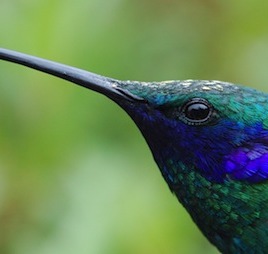One might think that larger birds invariably win fights with smaller ones, but a new study explains why that is not always the case. Researchers studied vultures at carcasses, hummingbirds at nectar sources, as well as antbirds and woodcreepers at army ant swarms to discover that some small birds have evolved ways to beat their opponents. […]
Tag: DNA
Genetic studies trace shifting populations in Canada’s Arctic
A new genetic study has clarified the relationships between the ancient and modern cultures in Canada’s Arctic. The results confirm that a single group – known as Paleo-Eskimo – arrived around 3000 BCE and disappeared around 1300 CE when a new group arrived from northern Alaska, the ancestors of today’s Inuit. Genetic information shows that […]
RNA research could lead to tailored prostate cancer treatment
New genetic research could help doctors predict which treatments will work best for a given prostate cancer patient. Researchers sequenced the RNA – molecules that tell them which genes are being expressed – from tumours in 25 prostate cancer patients. They then cross-referenced the RNA data detailed follow-up information, including reactions to different therapies. They […]

Canola genome decoded
Scientists have decoded the genome of Brassica napus, the plant that gives us canola oil. Developed in the 1970s by researchers from the University of Manitoba, Agriculture and Agri-Food Canada (AAFC), and National Research Council (NRC) in Saskatoon (“canola” stands for CANadian Oil Low Acid) the crop has gained huge commercial importance. Because Brassica napus […]
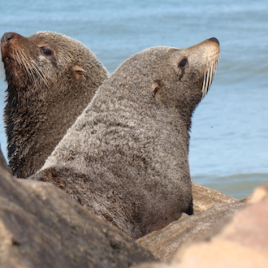
Ancient tuberculosis may have come from seals
Tuberculosis was already present in the Americas before European contact, and new research indicates that some strains may have arrived via an unusual route; seals and sea lions. Researchers have now sequenced the genomes of three strains of tuberculosis from 1000-year-old mummies from Peru. The strains are genetically very different from the European strains that […]
Genetically-modified salmon reproduce as fast as wild-type
Growth hormone (GH) transgenic salmon doesn’t reproduce faster than wild-type salmon, but transgenic salmon can reproduce with wild-type fish, a new study shows. GH transgenic salmon contains a chinook salmon growth hormone gene fused to an ocean pout antifreeze gene which significantly accelerate its growth rates. Researchers reared salmon in large (350,000 L), semi-natural, seawater tanks […]
Lighting the way for more tomatoes
Researchers have found a gene in a wild species of tomato that allows the plant to tolerate continuous light, potentially leading to a 20% yield increase in commercial varieties. One of the major limitations for crop productivity is the amount of light available each day but cultivated tomato plants often develop damaging leaf injuries when […]
New DNA technique could speed up genetic screening before birth
A new technique makes it easier for single molecules of DNA to be stretched out and imaged, which could lead to faster detection of genetic abnormalities in human embryos. The technique involves putting single DNA molecules in a liquid on top a bed of nano-sized grooves, then gently lowering a curved ‘lid’ on top. As […]

The 1000 Bulls Project: New bovine genomes published
The first phase of the “1000 Bulls Project” reports complete DNA sequences for 234 animals that are considered key ancestors of the worldwide Holstein-Fresian, Jersey and Fleckvieh breeds. By cross-referencing the tiny differences in these genomes with information on the animals performance – milk production (in dairy animals), weight gain (in beef cattle), genetic defects, […]
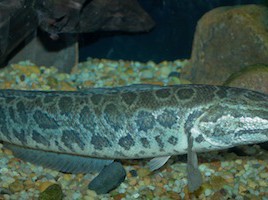
DNA barcoding could help catch invasive snakeheads
A new set of DNA barcodes could help combat the notoriously invasive fish known as snakeheads. Snakeheads are native to Asia and are believed to have been introduced to North American rivers by private collectors dumping their unwanted pets. Identification is difficult because the juveniles and adults can look very different, while fish from different […]
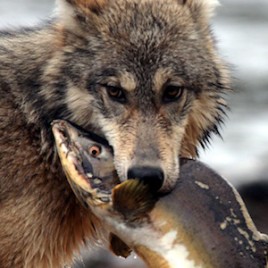
Genetics affirm existence of BC’s ‘coastal wolves’
New genetic information affirms what members of the Heiltsuk First Nation have long known: the islands off British Columbia host a population of ‘coastal wolves’ that is distinct but related to that of the timber wolves on the mainland. Examination of genetic markers from DNA collected in wolf droppings shows that coastal wolves are more […]
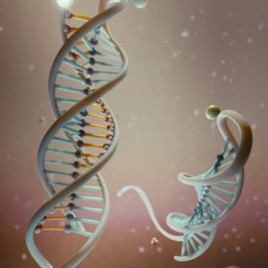
DNA sensor shines light on cancer
Researchers have created a DNA-based sensor capable of lighting up when it gets near cancer cells. The nano-sized construct alters its shape in response to tiny changes in pH; these contortions bring together two molecules which react to give off a light signal. Because cancer cells are often at a slightly different pH than non-cancerous […]
New DNA barcoding method speeds up species identification
A new DNA barcoding method will save money and time for researchers who wants to assess biodiversity in an ecosystem. The new method allowed researchers to correctly identify 92% of the 1,066 insects and spiders in a single analysis. They also were able to detect microbes associated with the insects and spiders. Previous […]
The variation inside
A Quebec-based study of 1000 people has found that even those with similar genes can have big variations in how those genes are expressed. The study looked at mitochondria, components of the cell that have their own DNA. The researchers found that when this DNA is transcribed to RNA, there was a lot of variation […]
